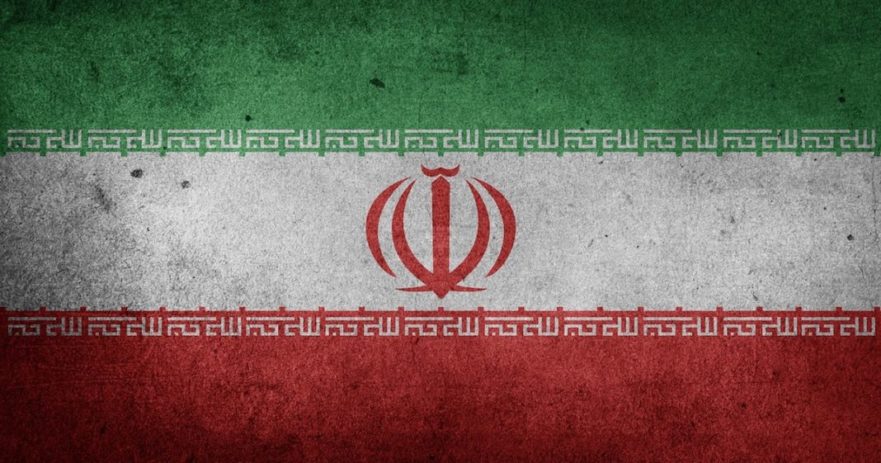A new lawsuit seeks to hold Iran responsible for terror attacks against US troops in Iraq. Filed in Washington, DC on May 15th, the lawsuit (Holladay, et al. v. Iran) alleges that at least 16 attacks on US troops in Iraq were carried out by “agents of Iran and involving Iranian-supplied munitions and weapons.”
The thirty-four plaintiffs were injured, directly or indirectly, in peacekeeping efforts during Operation Iraqi Freedom. The suit alleges that during those efforts, “Iran recruited, trained, and financed Iraqi terrorists, providing the most deadly IED’s used against US troops and paying bounties to terrorists who killed US civilians and soldiers.”
The suit is being brought by MM~Law, a firm that represents “victims of terrorism, genocide, torture, and human trafficking.” Iran has a long history of bankrolling terrorist acts and MM~Law is helping veterans and Gold Star families fight back. However, to finance attacks, Iran had help from foreign banks and even used American dollars to complete their transactions.
MM~Law’s site, IraqWarFund.com details the abhorrent way that US dollars were used to fund terrorist attacks against American soldiers:
“To date, nine foreign banks have admitted to entering into criminal conspiracies with Iran to provide it with billions of dollars in violation of U.S. and international laws—all while knowing Iran was a “State Sponsor of Terrorism” and a leading source of American injuries and casualties in the Iraq War.
Iran needed hard cash — U.S. dollars — to pay bounties to terrorists attacking civilians and U.S. and coalition forces as well as recruiting, training, arming, commanding and funding Shia and Sunni terrorist organizations engaged in murdering U.S. Soldiers and Citizen-contractors in Iraq.
The banks’ conspiracy with Iran facilitated the attacks responsible for the majority of U.S. casualties in Iraq between 2003 and 2011, killing and grievously wounding tens of thousands of Americans.”
Mike Papantonio of America’s Lawyer addressed the banks’ role in the suit:
“The key is to show where the money originated; which international banks participated in washing and legitimizing that money; what part of a terrorists entity received that money; and what individuals were killed and crippled in the use of that money.”
(Story Continues After Video)
Mike Papantonio’s firm, Levin, Papantonio, Thomas, Mitchell, Rafferty & Proctor, P.A., along with six other law firms, are named as co-counsel in the case and are expected to play a major role in the litigation of these claims.
Christopher Paulos, attorney with Levin Papantonio said in a press release:
“The attacks committed by criminal groups within Iraq utilized Iranian-trained individuals armed with Iranian-manufactured or provided weapons, and were financed and directed by Iran. We intend to pursue Iran and its agents, as well as its co-conspirators, using US laws to hold those responsible for committing or materially supporting Iran’s efforts, without which our clients would not have been attacked and injured.”
This suit would not be the first time Iran has been held legally responsible for their terror-related acts. One of the first suits was brought by Steve Flatow, who lost his daughter, Alisa, in a 1995 bus bombing in the Gaza Strip. The attack was carried out by the Palestinian Islamic Jihad, a group directly funded by Iran. In 1998, Flatow won a $250 million verdict against Iran.
Since then, a renewed focus has been brought to holding foreign entities responsible for their roles in terrorist attacks. Last year, the Supreme Court ruled that Iran’s central bank had to pay out almost $2 billion for sponsoring attacks like the 1983 attack on a Marine Corps bombing in Lebanon which killed 241 service members.
In November of last year, Congress voted to override President Obama’s veto of the Justice Against Sponsors of Terrorism Act (JASTA), which allows lawsuits to be brought against a country, even if they are not declared a “state sponsor of terrorism.” The first suit brought under JASTA, seeks to hold Saudi Arabia accountable for their efforts to fund the terrorists that carried out the 9/11 attacks.
If successful in their case, the plaintiffs may be paid from a $8.83 billion fine levied against the French bank, BNP Paribas. BNP plead guilty to assisting the Sudanese, Cuban, and Iranian governments in violating US sanctions by facilitating falsified financial transfers. That fund has already been used to compensate the victims of the US Embassy bombings in 1998 and to the fifty-two hostages taken in Tehran in 1979.
Those that wish to determine if their injuries might have been the result of wrongful conduct by Iran can visit IraqWarFund.com or visit the Iraq War Fund Facebook page.


Comments
What the actual fuck?
The entire Iraq war was a MASSIVE terrorist attack. The Iraqis had every right to attack the occupiers of their nation. Regardless of where the funding and training came from, you cannot call a legitimate resistance terrorism if the target of the attacks is an occupying military force.
Pap, you;re WAY off the reservation on this one.